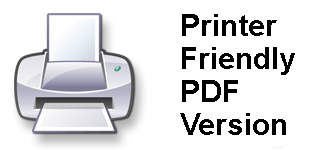When to take your medications prescribed by Dr Priestland………
When you are asleep in the operating theatre the anaesthetist may give you a large dose of antibiotics intravenously along with pain-control drugs and anti-inflammatory medications. This means you should NOT take the tablets prescribed for you by Dr Priestland until 8 hours after your operation. You will also be given long-acting anaesthetic injections at the sites of the surgery that will prevent pain for 8 to 12 hours after surgery.
As a general rule after surgery you may be given ………
- Antibiotics may in some cases be prescribed to resolve an associated infection (Keflex 500mg tablet/capsule taken every 8 hours for 20 doses). If you are having a general anaesthetic as a day case, you need only start taking the antibiotics around 8 hours after surgery as you will have been given intravenous antibiotics while you were asleep and they will remain active for approximately 8 hours.
- Anti-inflammatory drug (Naproxen 500mg tablet/capsule taken every 8 hours for 5-7 days. If you still have any swelling or pain then keep taking Naproxen until the swelling or pain has disappeared. Begin these 8 hours after surgery.
- Pain control tablets
Mild to moderate pain: Take 2 tablets of Panadol (Paracetamol 500mg per tablet) every 6 hours as required. These can be purchased at the supermarket or pharmacy. Paracetamol taken along with your anti-inflammatory drug (Naproxen) will have a very significant effect in reducing your pain.
Moderate to severe pain: Take 2 tablets of Panadeine Forte (Paracetamol 500mg/Codeine 30mg per tablet) every 6 hours. Side effects may include nausea, vomiting, constipation, drowsiness, dizziness and loss of concentration.
Severe pain: You may be provided with a prescription by the Anaesthetist for Endone (Oxycodone 5mg) tablets.
The dose is ONE 5mg tablet of Endone (Oxycodone 5mg) every 4-6 hours in addition to 6 hourly Paracetamol only tablets. Do not exceed this dose. Do not take Endone with Panadeine Forte.
IMPORTANT INFORMATION:
ONLY TAKE ENDONE WITH PARACETAMOL. NEVER TAKE WITH PANADEINE FORTE
Begin taking your pain control medications around 8 hours after surgery. This means they will be working when the long-acting numbing injections given to you during surgery start to wear off.
Notes on your drugs and side effects you might suffer………
All drugs can cause some side effects however they do not do so in all patients.
Antibiotics can cause gastrointestinal symptoms of nausea, vomiting and diarrhoea. If mild, finish the course but if more severe ring the practice. If gastrointestinal upset is experienced it may reduce the effect of oral contraceptives.
Anti-inflammatory drugs can upset the stomach, cause dizziness, stomach cramps, indigestion, heartburn and acid reflux. Any patient who suffers acid reflux must inform Dr Priestland as they should not take anti-inflammatory drugs. If these gastric symptoms occur when taking Naproxen, stop taking that drug and inform the practice team. A few, but not all asthmatics, may experience intense asthma if they take anti-inflammatory drugs. If you are one of these patients inform Dr Priestland and do not take anti-inflammatories. All non-steroidal anti-inflammatory drugs will interact with Warfarin (oral anticoagulant) and interact with ACE Inhibitors used in the treatment of hypertension. If you are not able to take anti-inflammatory drugs you may therefore experience a greater degree of post-operative swelling and hence it will be even more important to use ice packs on the face as explained in your post-operative instructions.
Pain control medication: Paracetamol such as Panadol or Panamax is a safe drug when taken according to drug directions. Do not exceed the directed dose of 8 tablets in 24 hours (8x500mg = 4gm) as liver damage may result.
Both Codeine and Oxycodone (Endone) are strong pain control medications therefore you MUST NOT drive, use machinery, make legally binding decisions, sign legal documents and you should refrain from using social media as you may publish material you would not normally make public. Any strong pain control medication can cause side effects including drowsiness, lack of concentration, disorientation, dizziness, nausea, vomiting and constipation.
WARNING: If you work in an occupation involving industrial Health and Safety regulations (eg. Mine sites), you should not be taking strong pain-control medications such as Codeine or Oxycodone. If you are subject to drug testing you may need a letter from Dr Priestland. Speak to the reception staff and they will arrange this for you.
Contact the friendly team at NQ Surgical Dentistry today on (07) 4725 1656 or call in to see us at 183 Kings Rd, Pimlico QLD 4812
